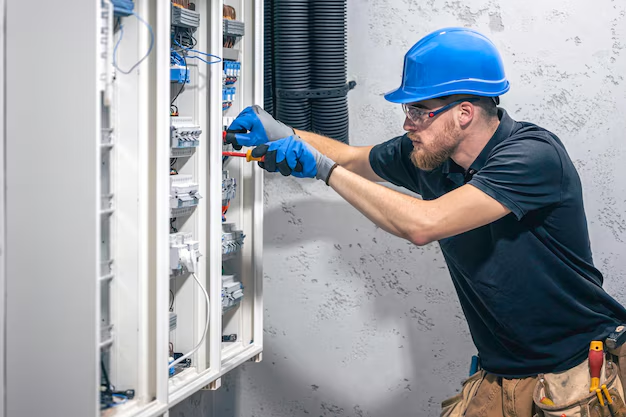Can a Generator Harm Your Refrigerator? Understanding the Risks and Safeguards
Imagine a storm knocks out your power for days, and your refrigerator full of food is at risk. A generator seems like a lifesaver, but you may wonder, "Can a generator damage a refrigerator?" This is a common concern for many homeowners who rely on generators during power outages. Let’s delve into this topic, offering insights and guidelines on safely operating a refrigerator with a generator.
Understanding How Generators Work
The Basics of Generators
Generators convert mechanical energy into electrical energy. This electricity powers appliances like lights, refrigerators, and more. Generators come in various types, each offering different power outputs. The power produced is measured in watts, which determines the capacity of appliances it can support.
Types of Generators
- Portable Generators: These are small, movable units ideal for short-term needs and can power a few large appliances.
- Standby Generators: Permanent installations that are connected to a home’s electrical system, ready to automatically kick in during an outage.
- Inverter Generators: Known for cleaner energy output and are often more suitable for sensitive electronics.
Power Output Considerations
To prevent damage to appliances, it's crucial to ensure that the generator's wattage matches or exceeds the requirements of the appliances you wish to power.
Refrigerator Power Needs
Typical Wattage and Surge Considerations
Most refrigerators require 100 to 800 watts while running. However, they need an initial surge to start up, known as the "starting watts." This surge can be 2-3 times higher than the running wattage.
Example of Power Needs:
- Running watts: 700 watts
- Starting watts: 2100 watts
Energy-Efficient Models
Newer refrigerators are generally more energy-efficient. They might have lower running watts but still require a high starting surge. It’s vital to check the appliance manual for precise wattage needs.
Risks of Using a Generator with a Refrigerator
Potential Damages
1. Voltage Fluctuations: Inconsistent voltage from a generator can lead to short circuits or motor damage in the refrigerator.
2. Frequency Variation: Generators might not maintain a steady frequency, which can impact the performance and lifespan of a refrigerator.
3. Power Overload: Pairing too many devices can overload the generator, causing equipment failure or damage.
Indirect Effects
Overloading a generator can not only damage the refrigerator but may also harm the generator itself. Furthermore, improper connection or installation could lead to electrical hazards like fires.
Safeguarding Your Refrigerator
Choose the Right Generator
- Calculate Needs: Add the starting and running watts of all appliances. Ensure the generator's output capacity is higher than this total.
- Opt for Inverter Generators: These provide stable and clean power, reducing the risk of voltage fluctuations.
Proper Installation Tips
- Use the Right Extension Cord: Heavy-duty cords rated for outdoor use help ensure safe power transfer.
- Avoid Overloading: Never exceed the generator's total wattage capacity.
- Regular Maintenance: Keep your generator in optimal condition for efficiency and safety.
Using a Surge Protector
A surge protector can prevent voltage spikes from affecting your refrigerator, offering an extra layer of protection against electrical surges.
Best Practices for Generators and Refrigerators
Operating Guidelines
- Test Regularly: Run your generator occasionally to ensure it's functional and ready when needed.
- Check Fuel Levels: Keep adequate fuel on hand during storm seasons.
- Manual or Automatic Transfer Switches: Use these to safely connect generators to the refrigerator, allowing smooth transition between generator and utility power.
Warnings
- Do not run generators indoors due to carbon monoxide risks.
- Ensure adequate ventilation, and never replace refrigerator fuses or breakers without proper knowledge.
Is a Generator Worth the Investment for Emergency Use?
Pros of Owning a Generator
- Peace of Mind: Knowing your refrigerator, among other appliances, remains powered during outages.
- Protection Against Food Spoilage: Keeps food safe, preventing waste.
Considerations Before Purchase
- Evaluate costs against potential losses during outages.
- Consider local climate and frequency of power outages in your area.
Consumer Tips and Key Takeaways
- 🔌 Match Generator Capacity: Ensure the generator's output covers both starting and running watts of devices.
- ⚠️ Avoid Voltage Fluctuations: Use inverter generators and surge protectors to prevent damage.
- 🔋 Maintenance Matters: Regular generator maintenance can prevent malfunctions.
- 📊 Calculate Load: Don't exceed 80% of the generator’s capacity for safe operation.
- 📄 Review Appliance Manuals: Understand wattage requirements to ensure compatibility.
In conclusion, while there are risks in using a generator with a refrigerator, adhering to best practices and taking proper precautions can prevent damage. By selecting the right generator, matching power needs, and utilizing safety devices like surge protectors, you can confidently keep your refrigerator running smoothly in any emergency. Understanding these aspects empowers you to make informed decisions and safeguard your appliances effectively.

